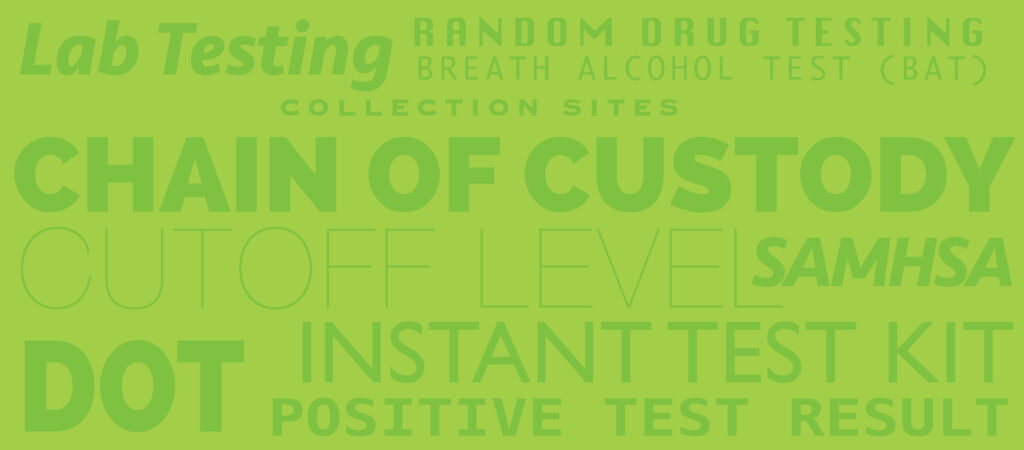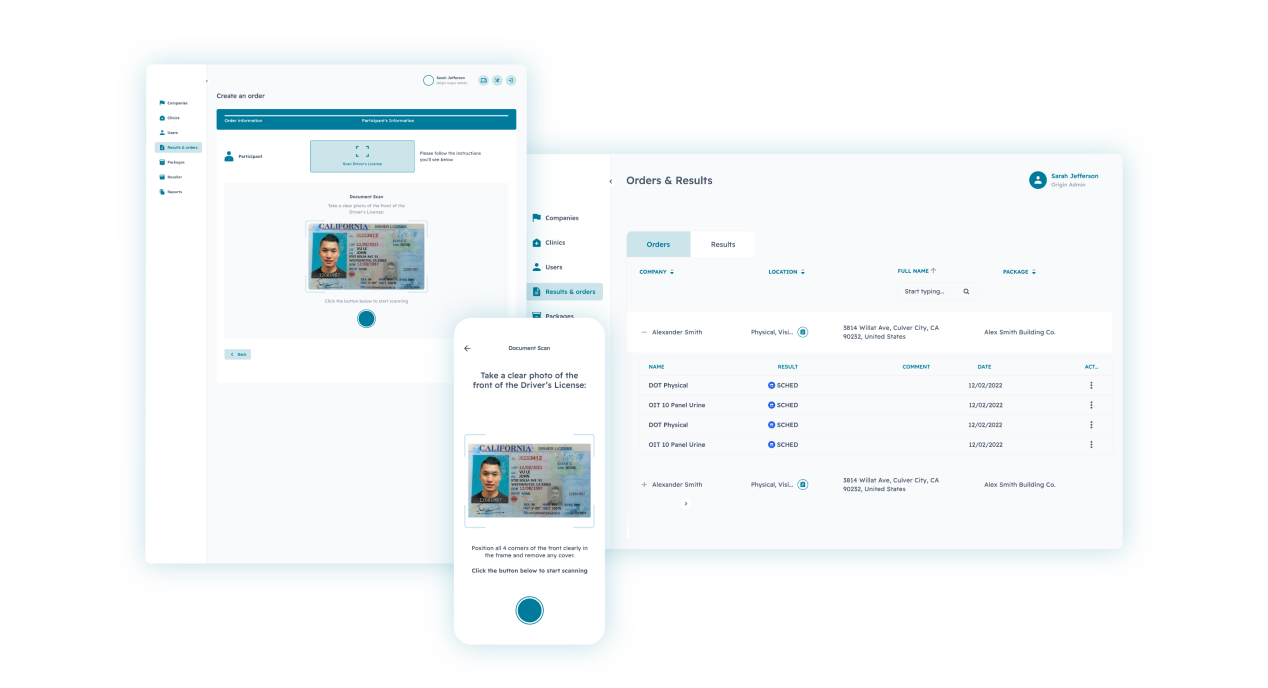
As an employer, you have a responsibility to provide a safe and positive workplace for your employees. To do that, your company must follow applicable state and federal laws, stay compliant with Occupational Safety and Health Association (OSHA), and keep an up to date Drug and Alcohol Policy. Department of Transportation (DOT) and NON-DOT organizations have extreme differences when it comes drug testing policies and processes. DOT companies are under the federal governments magnifying glass and must follow set forth rules and regulations when it comes to drug and alcohol policies and programs. NON-DOT organizations have more autonomy when it comes to establishing and implementing Drug and Alcohol policies and programs.
DOT
Simply stated, the DOT was established to protect the workforce and public from any possible dangers deriving from substance abuse while operating within safety sensitive professions. The United States Congress acknowledged the need for a drug and alcohol free transportation industry in 1991. (Transportaion.gov)
Who falls under DOT?
DOT takes jurisdiction for the interstate trucking industry where vehicles transporting hazardous materials are traveling public roads. DOT also covers safety sensitive workforces such as working on pipelines, operating a ferry, train, or airplane. Some examples of organizations that fall under the DOT umbrella are, the Federal Motor carrier safety Administration, the Federal Highway Administration, the Federal Railroad Administration, the Federal Transit Administration, and the United States Coast Guard.
What does DOT monitor and prohibit?
DOT drug and alcohol testing is closely monitored and must follow strict rules and regulations. All drug testing that occurs within a DOT organization must be conducted at laboratories that are certified by the Department of Health and Human Services. Additionally, urine is currently the only approved specimen for drug testing. The mandatory drug test panel tests for opiates, PCP, Amphetamine, Methamphetamine, Marijuana, and cocaine. For alcohol testing, breath and saliva are approved specimens and are tested using Evidential Breath Testing Devices. Prescription drugs are approved by DOT if the individual has a current and valid prescription that was authorized by a licensed physician.
When does DOT test?
For DOT, there are various obligatory drug test times that must be conducted. Testing must take place for pre-employment, random during employment, reasonable suspicion, post-accident, before an employee returns to duty, and before an employee returns to duty from an accident. For random drug and alcohol testing throughout employment it is important to stay on top of the Current Random Testing Rates. For example, in 2016 the annual minimum percentage of workforce that had to be randomly tested for the Federal Motor Carrier Safety (FMCSA) was 25% for drug and 10% for alcohol.
DOT goes Electronic.
Previously, DOT organizations had to have a specific paper Chain of Custody which would essentially document the specimens control, transfer, analysis, and disposition of physical or electronic evidence. However, recently the Department of Transportation approved Electronic Custody and Control Forms. Now, DOT can use digital forms and processes in place of the previous paper custody chain. This law allows employers, collectors, laboratories, and Medical Review Officers to use an electronic version of the Federal Drug Testing Custody and Control Form.
Additional DOT Requirements.
DOT gets audited to ensure that records are kept correctly and up to date. Employers are responsible for storing all drug and alcohol testing records to prove that they are compliant with all regulations. By keeping these files current, the government can ensure regulations such as, companies randomly testing the exact percentage required of their workforce.
NON-DOT
NON-DOT is simple; it is every company that is not labeled as DOT. NON-DOT companies have more liberty when it comes to designing and implementing drug and alcohol polices and processes. NON-DOT companies should consider the benefits that these policies and programs give to an organization by promoting safety through banning substance abuse. It is a good idea to establish whether a laboratory can conduct the drug and alcohol tests you are looking for. By ensuring the laboratory has the proper certifications, before you commission them to test your employees, you save valuable time. With the absence of DOT’s regulations, NON-DOT companies can also choose when to test their workforce for circumstances such as pre-employment, random and post accident. On the other side of the spectrum, NON-DOT companies could chose to not test at all.
For companies that handle DOT, NON-DOT or both, there is Origin. Origin is a Third Party Administer that can assist you from constructing your drug and alcohol policy to managing all of your drug and alcohol testing processes. In addition, the OriginONE platform, allows employers to recruit, onboard, background check, train, test, and badge employees and contractors. By using Origin’s platform, your data entry errors will significantly decrease by reducing the amount of human errors that can occur while using paper processes. Start saving valuable time and money by improving your process and going paperless with Origin.
